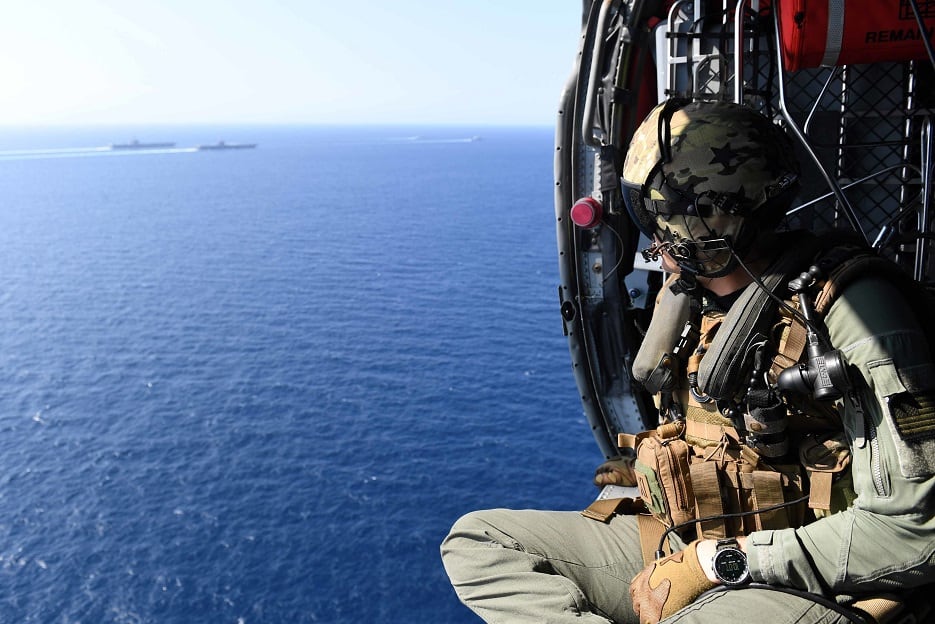WASHINGTON — House Armed Services Committee Chairman Mac Thornberry warned Wednesday that political infighting on Capitol Hill is having a harmful effect on national security, both in defense budget debates and Congress’ strategic planning.
“I am distressed at what’s happening in both parties,” said Thornberry, R-Texas, during a speech at the Center for Strategic and International Studies. “We have always had fringe elements in our politics, but other than the Civil War, those things that bound us together have been stronger than the forces pulling us apart.
“The centrifugal forces now are quite strong, here and elsewhere. And make no mistake, there are those outside our borders who are ready, willing, and more able than they have ever been before to fuel and exploit those forces to our detriment.”
Thornberry’s comments came as he was being honored with the think thank’s National Security Leadership Prize, designed to recognize individuals “who put our nation's interest ahead of political considerations.”
RELATED

As he has many times in recent months, the chairman expressed concerns over evolving national security dangers from major power adversaries and rogue terrorist cells, but also voiced confidence that U.S. military might can counter those threats, if lawmakers don’t get in the way.
“We can handle Russia and China and North Korea, of cyber, and artificial intelligence, and synthetic biology,” he said. “My concerns are mainly about us ― the decisions we make or don’t make ― even our ability to make a decision.
“Which, of course, means our politics.”
Thornberry said he is optimistic that Congress will pass a full-year defense budget by the end of the month, something they haven’t been able to do before the start of a new fiscal year in two decades.
But he said struggles with defense spending caps and appropriate funding for military priorities have been exasperated by wider political battles within Congress in recent years, a trend he said too often politicizes the Defense Department in ways beyond ideological differences.
“It is obviously tempting to voice an opinion on every tweet or interview,” he said. “There will be one faction or the other that will cheer. But when every utterance is a criticism, it dilutes the effectiveness of all criticism.
“It all runs together. The public tunes it out, divides into opposing camps. Having perspective on what is important means that we have to be willing to husband our criticism for those things that really matter. We don’t have to fuss about everything.”
Thornberry’s comments come as planning is already underway for the fiscal 2020 defense budget debate set for next spring, after November’s midterm elections reshape Congress. His chairmanship rests on whether Republicans can retain control of the House in an election that many see as heavily influenced by controversies surrounding President Donald Trump.
But even if his party stays in power, the House Armed Services Committee looks to be significantly different next year, with one-sixth of the panel already announcing plans to leave the House (or having lost primary elections).
Thornberry did not directly reference the election in his remarks, but reinforced the importance of congressional oversight of military needs regardless of the other political forces at work.
“Having that connective tissue healthy and functioning, especially on national security issues of such reach and complexity, especially in a time of such turmoil, is more necessary than ever before,” he said.
Leo covers Congress, Veterans Affairs and the White House for Military Times. He has covered Washington, D.C. since 2004, focusing on military personnel and veterans policies. His work has earned numerous honors, including a 2009 Polk award, a 2010 National Headliner Award, the IAVA Leadership in Journalism award and the VFW News Media award.




